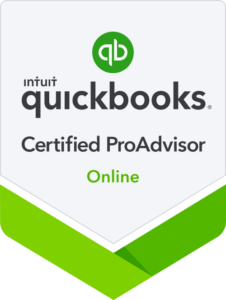
Tax planning is an essential component, integral to successful financial planning.
In most cases, the cost of taxes is among the most expensive yearly financial commitments. There are basic online tools and tax calculators that can help you figure out an estimate of your 2019 tax payment. However, the best way to know exactly how much you will end up paying in taxes is to consult a tax professional. They can not only help you figure out your 2019 financial tax commitment, but can also help you integrate a tax planning strategy that can provide a solid foundation to set you up for future years.
Tax Brackets
There are seven federal tax brackets for 2019. The percentages are as follows: 10%, 12%, 22%, 24%, 32%, 35% and 37%. The bracket with which you fall will be determined on both your taxable income and filing status. It is important to note that falling in a tax bracket does not necessarily mean you will pay that federal income tax rate on everything you earn. The IRS determines the amount of tax you will owe by dividing your taxable income into chunks. This means that no matter which bracket you fall in, you will not pay that percentage on your entire income. For example, in 2019, if you are single and earn between $38,701 to $82,500 you will fall in the 22% tax rate bracket. However, you will only pay approximately $4,453.50 plus 22% of the amount over $38,700 that you earned. Generally speaking, people with larger taxable incomes are subject to higher federal income tax rates, and people with lesser taxable income are subject lower federal income tax rates.
2019 Largest Tax Breaks
There are several tax breaks that can greatly impact your 2019 tax bill, should you qualify. They include, but are not limited to the following:
Adoption tax credit: the adoption tax credit is set to reimburse adopting parents for up to $13,810 in qualified expenses. (This credit phase out begins with incomes over $207,140.)
Standard deduction: the standard deduction for individuals is $12,200 and $24,400 for joint filers. The monetary amount saved on your tax bill, with tax rates ranging from 10% to 37%, can save anywhere from $2,400 to $8,800.
Earned income tax credit: available to low and middle income tax payers, the amount varies by family size. Families with three qualifying children can claim as much as $6,557.
Retirement plan contributions: contributions to 401(k) as well as 403(b) can deduct up to $19,000 (for those younger than 50) and $25,000 (for those 50 or older).
American Opportunity tax credit: provide a tax break to eligible students or parents attending higher education programs.
Home mortgage interest: if you have enough itemized deductions to go over the standard deduction amount, mortgage interest is often one of the largest itemized deductions.
Child and depended care tax credit: taxpayers can save anywhere from $600 to $2,100 when using up to $3,000 in care-related expenses for one child or $6,000 for two or more children.
By taking advantage of and properly utilizing tax credits and tax deduction people can lower their federal income tax rate, lowering their overall tax bill.
For Further Information
If you follow your instincts and are clear with your needs you will likely find an accountant that is an excellent fit. While the task to connect with the right accountant may seem overwhelming, please keep in mind it will be worth it in the long run. The financial guidance that a good accountant will provide during one’s lifetime can result in significant financial gain. With the full range of accounting services Allman & Allman APAC provide, we are certainly equipped with the expertise for which you may be in need. Seeking guidance from our firm will proved you the opportunity to work with individuals armed with broad and deep financial knowledge, able to provide advice on a wide range of issues. As a full service public accounting firm, our professional services will surely help you succeed and thrive.
Please feel free to reach out to Allman & Allman APAC via email at Genna@allmancpa.com or via phone at 760-773-1120 (Palm Desert) or 310-544-1120 (Rolling Hills Estates) to discuss your situation and find out how we can help you grow. We look forward to hearing from you.





















